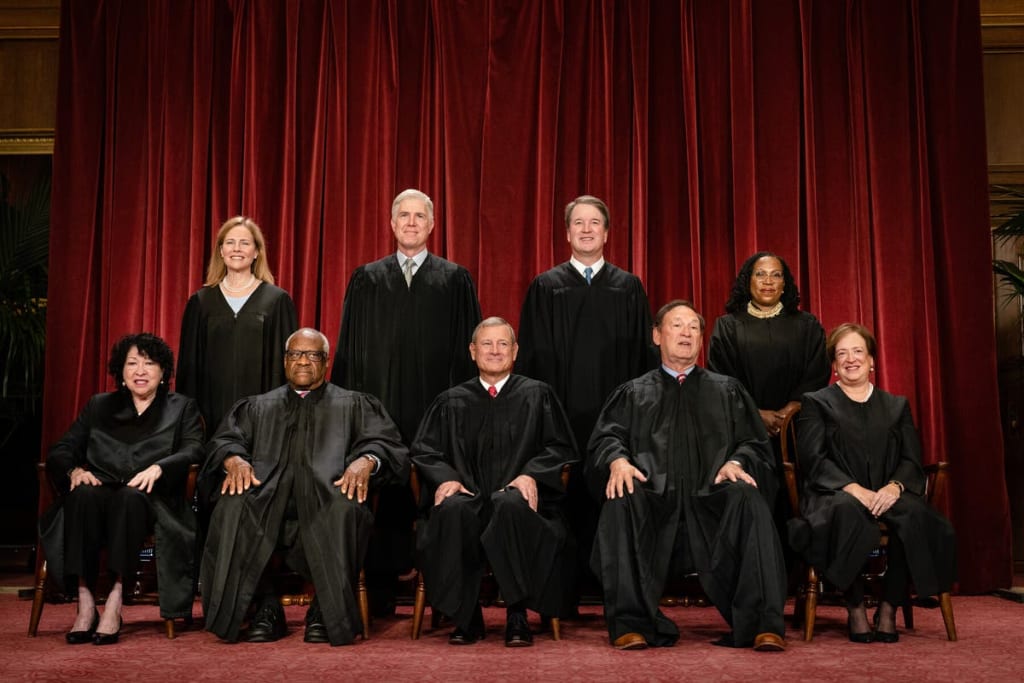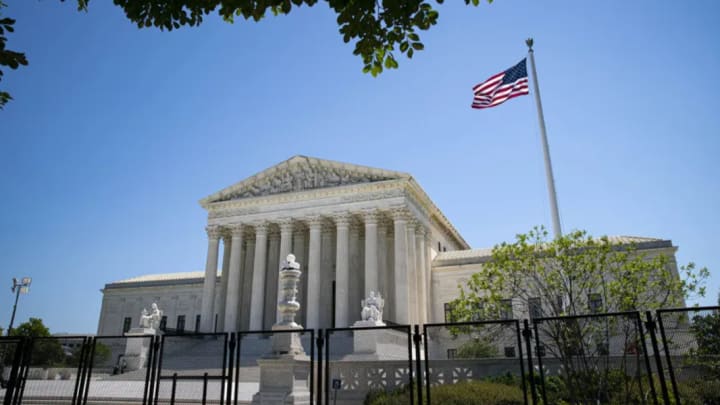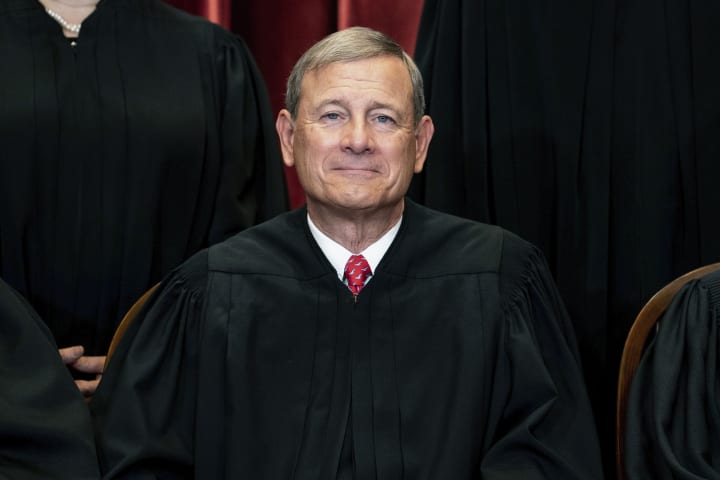The use of affirmative action in college admissions is outlawed by the US Supreme Court.
States Newsroom's Ariana Figueroa and Ashley Murray

States Newsroom's Ariana Figueroa and Ashley Murray
Frontline Secrets: Supreme Court and Political Issues
In Washington The use of affirmative action in the college admissions process across higher education has been significantly changed as a result of the U.S. Supreme Court's decision on Thursday that the use of race in admissions decisions by two prestigious colleges was unconstitutional.
The University of North Carolina and Harvard University's admissions procedures are unconstitutional under the 14th Amendment, according to a 6-3 ruling by Chief Justice John Roberts, who wrote for the majority.
"Harvard's and UNC's admissions programs cannot be reconciled with the guarantees of the Equal Protection Clause because they lack sufficiently focused and measurable objectives warranting the use of race, inevitably employ race in a negative manner, involve racial stereotyping, and lack meaningful end points," Roberts wrote.
"For too long, many universities have reached the incorrect conclusion that a person's identity is not determined by obstacles overcome, abilities developed, or lessons gained, but rather by the color of their skin. The constitutional history of this country does not permit that option, Roberts continued.
This choice has an impact on higher education in general because UNC is a public university and Harvard is a private institution.
Sonia Sotomayor, Elena Kagan, and Ketanji Brown Jackson, the three liberal justices, cast dissenting votes.
While the equal protection clause "enshrines a guarantee of racial equality," Sotomayor wrote the dissenting opinion, contending that the Supreme Court "long ago concluded that this guarantee can be enforced through race-conscious means in a society that is not, and has never been, colorblind."
She stated, "In so holding, the Court... enshrine[s] a superficial norm of colorblindness as a fundamental principle in an endemically divided society where race has always mattered and continues to matter. "By further entrenching racial inequality in education, the very cornerstone of our democratic government and pluralistic society, the Court undermines the constitutional guarantee of equal protection,"
Harvard and UNC, according to Sotomayor, "have sordid legacies of racial exclusion." She claimed that the university, whose founders included slaveowners and Klu Klux Klan members, fought integration until it eventually accepted the first Black student in 1963.
She noted that numerous buildings still contain the names of Ku Klux Klan members and said, "To this day, UNC's deep-seated legacy of racial subjugation continues to manifest itself in student life."
Sotomayor pointed out that Harvard's origins was inextricably linked to slavery and racial subordination.
"Harvard and UNC have reckoned with their past and its lingering effects against this historical backdrop," she wrote.
Jackson joined the dissenting viewpoint but withdrew from the decision's consideration of Harvard.
Jackson, a graduate of Harvard College and Harvard Law School who most recently served on the Harvard Board of Overseers, one of the two governing bodies for Harvard University, took part in the discussion of the UNC case but not the Harvard case.

The choice was made as a result of legal actions taken in 2014 against Harvard College and the University of North Carolina separately. The two lawsuits aimed to invalidate Grutter v. Bollinger, which now governs how colleges and universities employ racial admissions criteria.
Harvard and UNC have maintained that the colleges make admission decisions in accordance with Grutter's standards and that race is just one of the numerous criteria they take into account, along with socioeconomic status and extracurricular activities.
A group called Students for Fair Admissions, which receives funding from conservative legal activist Edward Blum, filed both lawsuits in response to what he perceives to be racial considerations in school admissions.
Because Asian American applicants are less likely to be admitted than equally competent Black, Latino, or Indigenous applicants, the group claims that Harvard violated Title VI of the Civil Rights Act in the Harvard case. Title VI prohibits racial discrimination in organizations that receive federal financing.
In the UNC case, it is claimed that the university's consideration of race in the admissions process constitutes a violation of the equal protection clause of the 14th Amendment.
Federal courts disagreed with the arguments of Students for Fair Admissions and supported the colleges.
When President Lyndon B. Johnson signed an executive order prohibiting discrimination in the workplace based on race, religion, and later gender, by those organizations that obtained government contracts and subcontracts, affirmative action was born out of the civil rights movement of the 1960s.
Florida, California, Michigan, Nebraska, Arizona, New Mexico, Oklahoma, and Idaho are the nine states that have outlawed the use of racial affirmative action in public institutions. In 2022, the state of Washington lifted its prohibition on affirmative action.
"My heart hurts,"
Current and past MPs and leaders responded to the decision with remarks and social media posts.
The nation's first Black president, Barack Obama, and the former first lady, Michelle Obama, issued statements less than an hour after the choice was made that included references to foundations and groups that support minority students' access to higher education.
Michelle Obama stated, "So often, we just accept that privilege, wealth, and power are perfectly justifiable forms of affirmative action, while kids growing up like I did are expected to compete when the playing field is anything but level."
"As a result, my heart aches for every young person out there who is uncertain about their future and the opportunities that will be available to them. And although though I am aware of the tenacity and resilience found in children who have always had to work a little harder to climb the same ladders, I hope and pray that the rest of us are also prepared to put in a little extra effort.

Affirmative action, according to the former president Obama, "wasn't perfect."
"However, it gave students like Michelle and me the opportunity to establish our identity. It's now up to us all to provide young people with the chances they deserve and support students worldwide in gaining new perspectives, he said.
The decision, according to New York senator and majority leader in the Senate Chuck Schumer, was "misguided" and "has put a giant roadblock in our country's march toward racial justice."
"Students of color will have less opportunities to enroll in the same schools and universities as their parents and elder siblings in the upcoming admission cycle, which will have immediate and nationwide effects. As the historical evils of exclusion and prejudice in education and society are perpetuated, these unfavorable effects can last for generations, Schumer said in a statement.
Nikki Haley, a former governor of South Carolina and a Republican presidential candidate in 2024, applauded the choice.
"America is revered around the world because we respect freedom and opportunity. Today, the Supreme Court confirmed these principles. Racial preferences should never be used to determine who wins and loses. In a statement released shortly after the decision, she said that it would improve every student's chances of realizing the American Dream, regardless of their background.
oral debates
Last year, during oral arguments, the court's conservative majority, which is now 6-3, questioned whether it is legal for universities to take race into account and how long such policies should last, citing a 2003 case that stated affirmative action would be obsolete in 25 years.
The Grutter v. Bollinger case, which concluded that race was only one of several factors taken into account when considering an applicant, permitted the limited use of race in college admissions. The case gave the University of Michigan Law School permission to take racial diversity into account when deciding which applicants to accept.
The only Black member of the Supreme Court and conservative Justice Clarence Thomas grilled those defending the school's policy on how diversity enhanced education.
I did not attend a racially diverse school, although there were advantages in the classroom. And I want you to specifically tell me that parents don't necessarily send their children to college so they can have fun or feel good or anything like that. Thomas stated to Ryan Park, the lawyer for UNC, "They send kids there to learn physics or chemistry or whatever they're learning. So tell me, what are the educational advantages of that.
About the Creator
MD IMRAN HOSSAIN
I love writing....





Comments
There are no comments for this story
Be the first to respond and start the conversation.